Polar Camps & Afterschool Programs (Polar CAP)
The Polar CAP project was funded by the NSF AISL program (Award #1906897). The project’s goal was to develop an educational research-based program designed to develop innovative ways of engaging young learners in exploring scientific data while increasing their understanding of the Polar Regions.
Developed during the 2020 pandemic, the Polar CAP materials have been designed to be adaptable for various facilitators and youth groups. The Polar Adventure online modules can be used as a guided tour through the Polar Regions for youth.
Our Facilitator guides offers opportunities and information on how to engage young people in social interaction and collaboration as they learn about the Polar Regions and climate change. We encourage learning through conversation where youth can tap their prior knowledge and share their ideas and insights. Facilitators are encouraged to follow this learning format of Engage, Explore, Make Meaning.
Engage-Explore-Make Meaning
| Learning Cycle: Scaffolded approach to teaching that includes three phases. | What You Do: Facilitator tips for using the Learning Cycle |
| Engage: Set the stage for learning. Spark interest and spur youth to build on their prior knowledge by recalling past or present connections that are relevant to the learning experience. | Create interest, curiosity, focus and anticipation about topics to be explored. Give youth engaging discussion prompts. |
| Explore: Encourage interest and questions. Engage in activities that model real phenomena and serve as a reference point for the entire group. | Encourage youth to work together, independent of direct instruction from the facilitator. Provide only as much instruction and information as necessary to set the group up for successful independent exploration. |
| Make Meaning: Ask youth to generate explanations of the concepts they are learning and to reflect on what they have learned and how they learned it. | Ask youth to explain ideas, concepts, definitions, and science practices in their own words. Ask for evidence, results, and clarification from youth to help guide them to make sense of their experience. Provide opportunities for youth to apply vocabulary, skills and explanations to new issues related to the ocean and climate change. Prompt youth to think about their former ideas about the ocean and evolve new ideas. |
Project Team
To learn more about our team, check out the Polar CAP Team page.
What we have learned
Click here to see a list of reports, posters, and presentations by the Polar CAP team and what we have contributed to the field of informal science learning.

